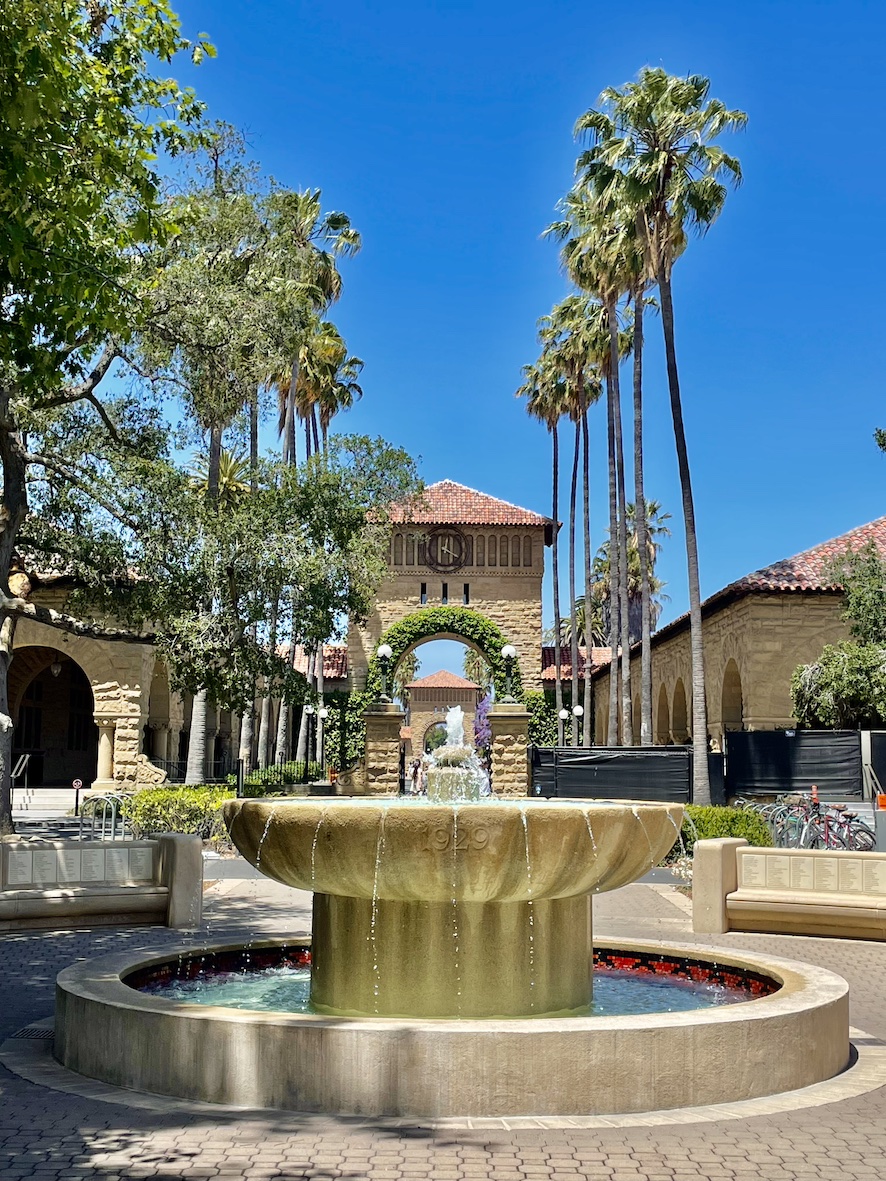Rein Raud:
I arrived in Stanford with a fairly clear idea of what I wanted to do — and I accomplished not just all that, but also a lot more. My main goal was to gather and process material related to a philosophical understanding of current Russian totalitarianism, especially in its cultural aspects. Since the escalation of the Russo-Ukrainian war into a full-fledged conflict in 2022, I had been reading post-Hegelian Russian philosophers, both Bolshevist and anti-Bolshevist ones, in order to get a grasp on the historical, social and political narratives that had made this war possible, and also historians and social scientists who have analyzed the transformations of Russian society since the fall of the empire in 1917, through Stalinism, the Khruschev thaw, Brezhnev stagnation, perestroika and the post-Soviet period. I am not a historian of Russian society and ideas, but as a cultural theorist I have been trying to make sense of them in a more intellectual context. Just like for many people all over the world, the decision of Putin to start a full-fledged war had been a surprise for me, and yet, in retrospect, the trajectory from the failed democracy of the 1990s and the takeover of political power by the repressive apparatus to a military dictatorship unfortunately makes perfect sense.
One of my aims was to put these empirical data into a comparative framework and to find possible points of overlap between the developments in Russia/Soviet Union and other “secondary modernities”, that is, countries, which are not a part of what is usually considered to be the “West”, but which have also not been politically subjugate to the West, such as Japan, Turkey, Iran, China, and so on. All of these countries have had to establish a relationship with the West, needing its recognition on the one hand and trying to maintain a balance between Westernization and the preservation of their cultural and social heritage on the other. Not all of that heritage is compatible with Western values. Therefore, certain actors in all those societies have tried to supplant the oppressive elements in their traditions with social institutions imported from the West, while keeping their cultural identities intact. Other actors have tried to do precisely the opposite — to suppress any democratic developments and to keep the putative Westernization of their societies on the level of consumer habits. In many of these countries, a similar drive for totalitarianism and ideological control has been strong, perhaps even stronger than in Russia, which has had a special place among them — unlike all the other “secondary modernizers”, it is the only such nation with Christian roots, and one that has seen itself in dialogue with the West in the past.
The Stanford libraries have been the ideal place to conduct research on these topics. One the one hand, there are extensive collections of Russian material, comparable only to what is there in the archives and libraries of Russia, which are currently inaccessible because of political reasons. On the other hand, there are also impressive resources of American analyses of these political processes, which have been carried on constantly, but earlier studies of this type are often difficult to find. I returned home with thousands of pages of scanned articles and book chapters, and notes on the material I managed to work through while I was there.
In addition, the Centre for Russian, East European and Eurasian Studies provided a stimulating intellectual environment and I was happy to benefit from conversations with Amir Weiner, Jovana Lazić and many of the guest researchers who were attending Stanford at the same time. The regular seminars on Fridays, with many high-level speakers, including such dignitaries as the former Ukrainian minister of defense Oleksi Reznikov and the exiled Belarusian diplomat-turned-activist Andrei Sannikov, authors such as Viktor Yerofeev, and fellow researchers such as Branko Sekulić, these occasions provided for inspiring discussions of topics related to my research and beyond. I was honoured to be able to speak on one of those occasions. Events organized by CREEES as well as other divisions of Stanford, including the lectures by the Finnish author Sofi Oksanen, the Ukrainian human rights activist and Nobel Peace Prize laureate Oleksandra Matviichuk, the British war historian Lawrence Freedman, the Canadian/Bulgarian political corruption sociologist Maria Popova and the political theorist Elizabeth Saunders from Cornell University provided a lot of theoretical and empirical context for my study.
Another setting of extremely interesting discussions were the weekly seminars on Baltic recent history and culture, with speakers mainly from Estonia, Latvia and Lithuania participating, some of them visiting scholars in the US, such as myself, Juhan Saharov from Tartu University (Estonia) and Liina Kamm from Cybernetica (Tallinn, Estonia), others academics of Baltic descent working at US universities, such as Asta Zelenkauskaite from Drexel University and Dovile Budyte from Georgia Gwinnett College, and, last but not least, Stanford’s own specialists in the area, including Liisi Esse, Curator for Estonian and Baltic Studies at Stanford Libraries, who was also a gracious host to me and other Estonian scholars during our whole stay.
All in all, the material gathered and the ideas developed during my stay in Stanford will be reflected in many ways in my publications in preparation as well as the courses that I will be teaching at Tallinn University. I cannot imagine a more fruitful way of spending a sabbatical than this. I would therefore like to express my heartfelt thanks to the Kistler-Ritso Foundation, Vabamu, and personally to Liisi Esse, Jovana Lazić and Kadri Paju for their personal roles in making this possible, to Shelly Coughlan for her help with many practical matters and to everyone at CREEES for the wonderful academic atmosphere that I will be remembering for a long time.


 Back
Back